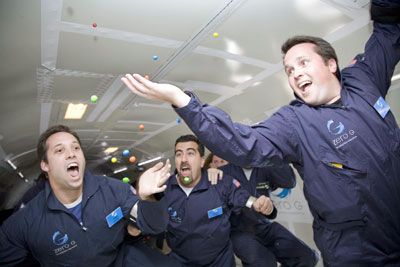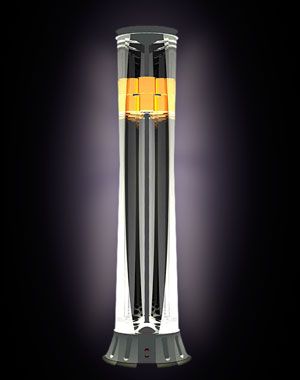
Describing a person as "down to earth" is the same as saying that he or she is "grounded." In other words, it's like saying that the person is "the salt of the earth." To say the least, this person certainly does not have his or her "head in the clouds." What all of these idioms are trying to convey is a person who is humble, self-aware and pragmatic – a person whose head hasn't filled up with so much idealism and fanciful nonsense that it could balloon and lift them off their feet.
In truth, it's not humility but gravity – the natural phenomenon pulling matter together – that keeps humans and other objects grounded. If our planet were to lose gravity for even five seconds, it would spell the end of life on Earth as we know it.
Advertisement
Gravity pulls objects toward one another. The more massive an object is, the stronger its gravitational pull. The closer you are to an object, the stronger its gravitational pull. Earth, of course, is massive and very close to us. Its gravity is what keeps people walking on the ground and what causes feathers and textbooks to fall to the floor when dropped [source: Caltech].
The sun is much, much bigger than Earth – more than 1 million copies of our planet could fit inside it. The sun's gravity is what keeps our planet and others orbiting around that burning-hot star [source: NASA].
Without gravity, humans and other objects would become weightless. Ever see movies where astronauts are fumbling around trying to plant their country's flag on the moon? The reason they bounce up and down is that the moon is much smaller than, and therefore has much less gravity than, Earth. Same goes for when we see astronauts floating around weightless in their spacecrafts: The farther they get from Earth, the less the planet's gravity pulls them to the ground [source: Gannon].
If Earth suddenly lost all of its gravity, we wouldn't just start floating. The lack of any forceful gravitational pull would turn humans – and anything else with mass, like cars and buildings – into very fast-moving tumbleweeds. That's because the planet would continue spinning, without exerting gravity to keep objects tied to it [source: Domanico].
A loss of gravity would also mean that the planet would stop pulling down air, water and Earth's atmosphere. That's where the apocalyptic devastation somewhere along the lines of a Michael Bay movie come in. A sudden and significant loss of air pressure would immediately shatter everyone's inner ear. Think about the pressure that builds when you're flying or scuba diving; this would be much more intense and immediate. Concrete structures would crumble as oxygen – an important binding agent – left the planet [source: Cote].
What's H2O without the O? That's right, water would become hydrogen gas, causing immediate explosions among every living cell. Sure, it would be over in five seconds, but none of us would be around by the time the gravity came back [source: Cote].
Advertisement


